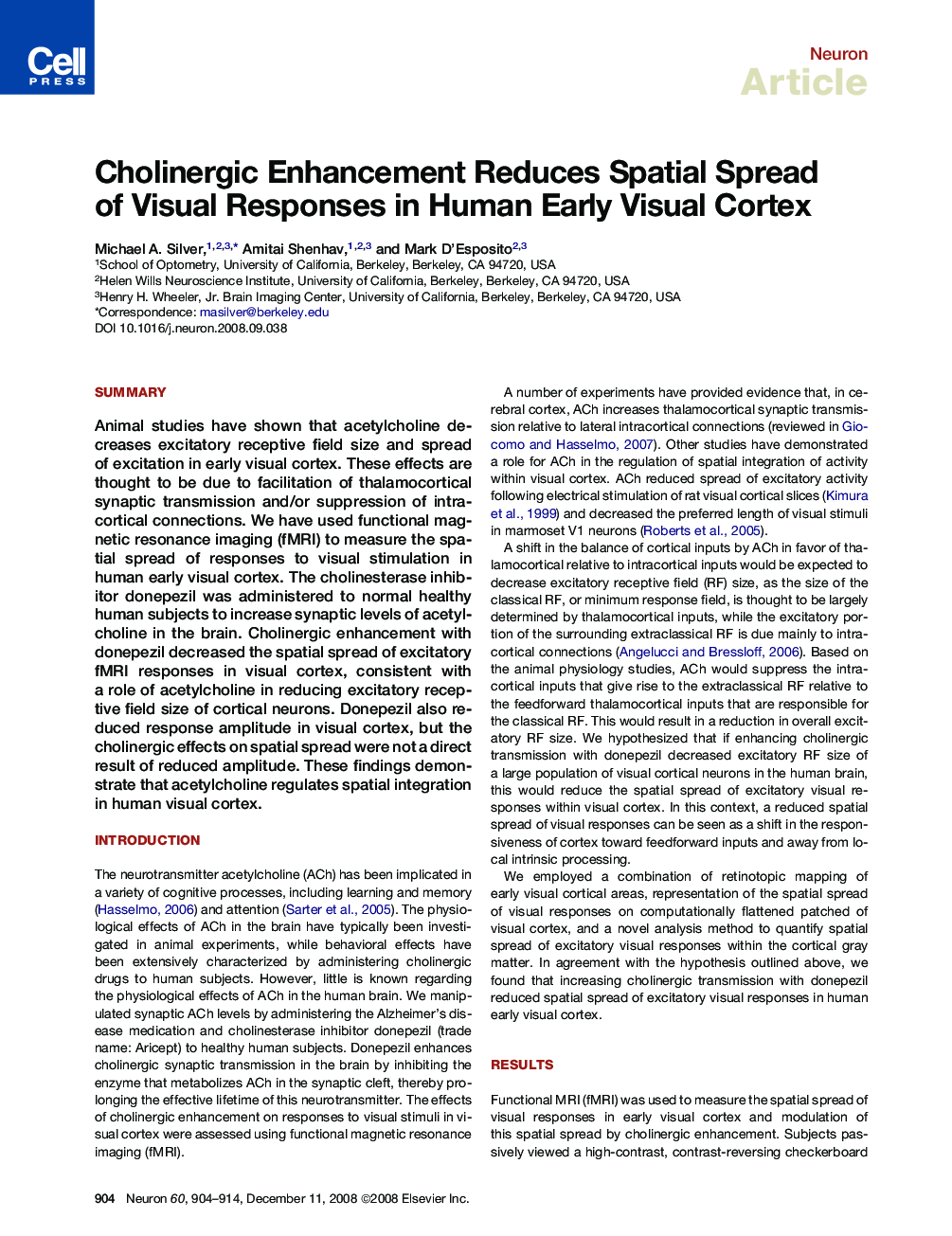| Article ID | Journal | Published Year | Pages | File Type |
|---|---|---|---|---|
| 4322135 | Neuron | 2008 | 11 Pages |
SummaryAnimal studies have shown that acetylcholine decreases excitatory receptive field size and spread of excitation in early visual cortex. These effects are thought to be due to facilitation of thalamocortical synaptic transmission and/or suppression of intracortical connections. We have used functional magnetic resonance imaging (fMRI) to measure the spatial spread of responses to visual stimulation in human early visual cortex. The cholinesterase inhibitor donepezil was administered to normal healthy human subjects to increase synaptic levels of acetylcholine in the brain. Cholinergic enhancement with donepezil decreased the spatial spread of excitatory fMRI responses in visual cortex, consistent with a role of acetylcholine in reducing excitatory receptive field size of cortical neurons. Donepezil also reduced response amplitude in visual cortex, but the cholinergic effects on spatial spread were not a direct result of reduced amplitude. These findings demonstrate that acetylcholine regulates spatial integration in human visual cortex.
